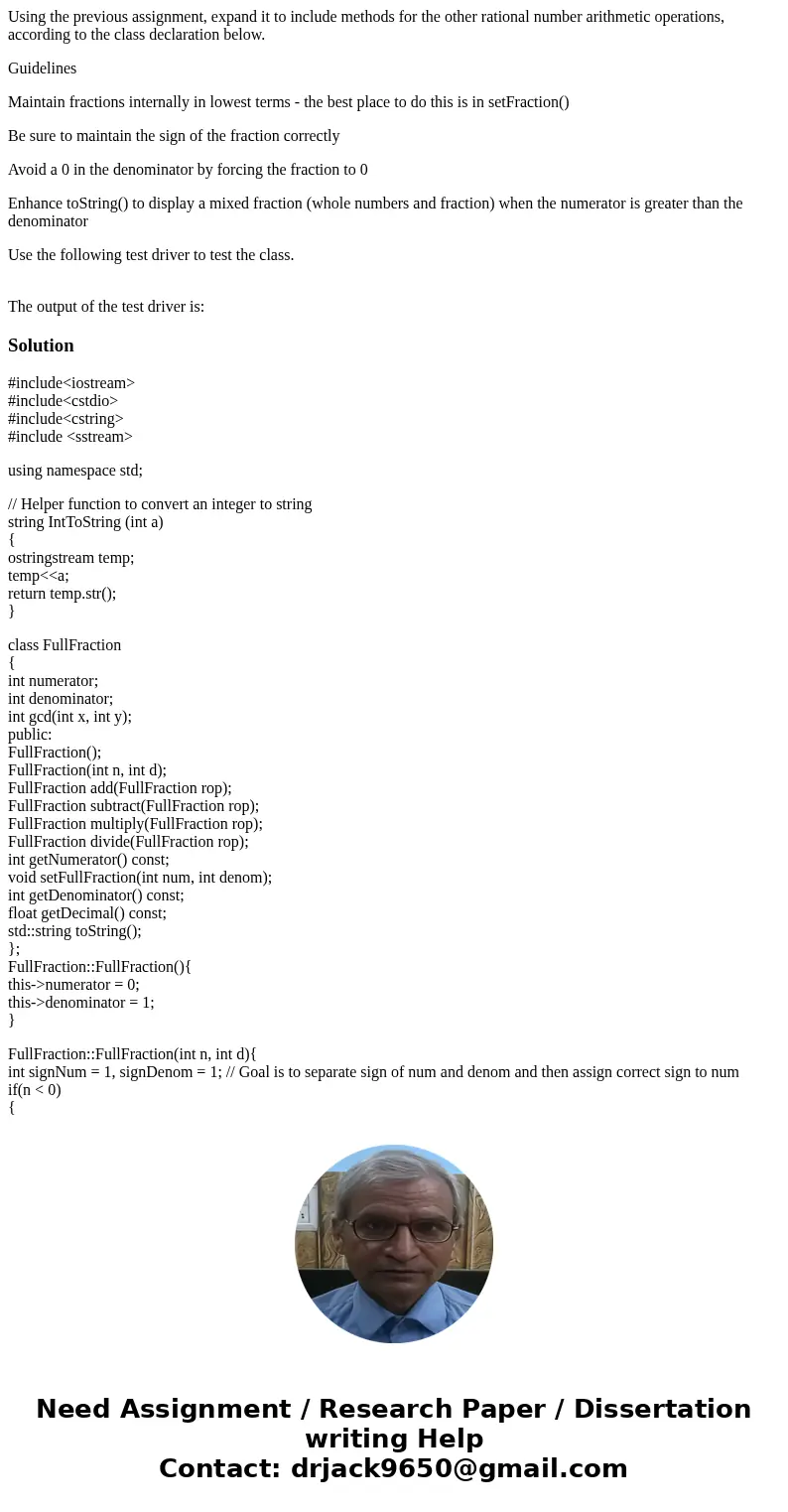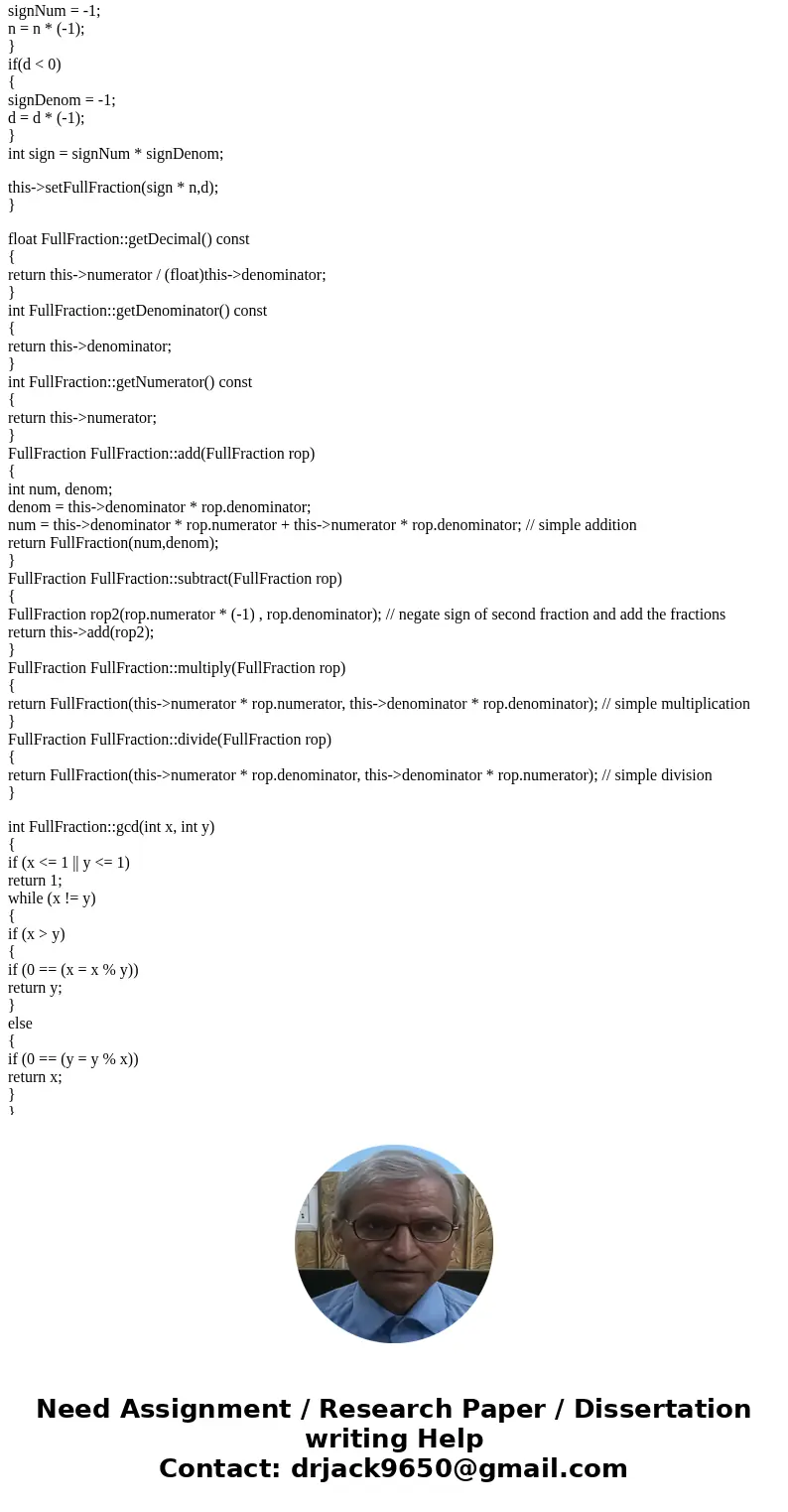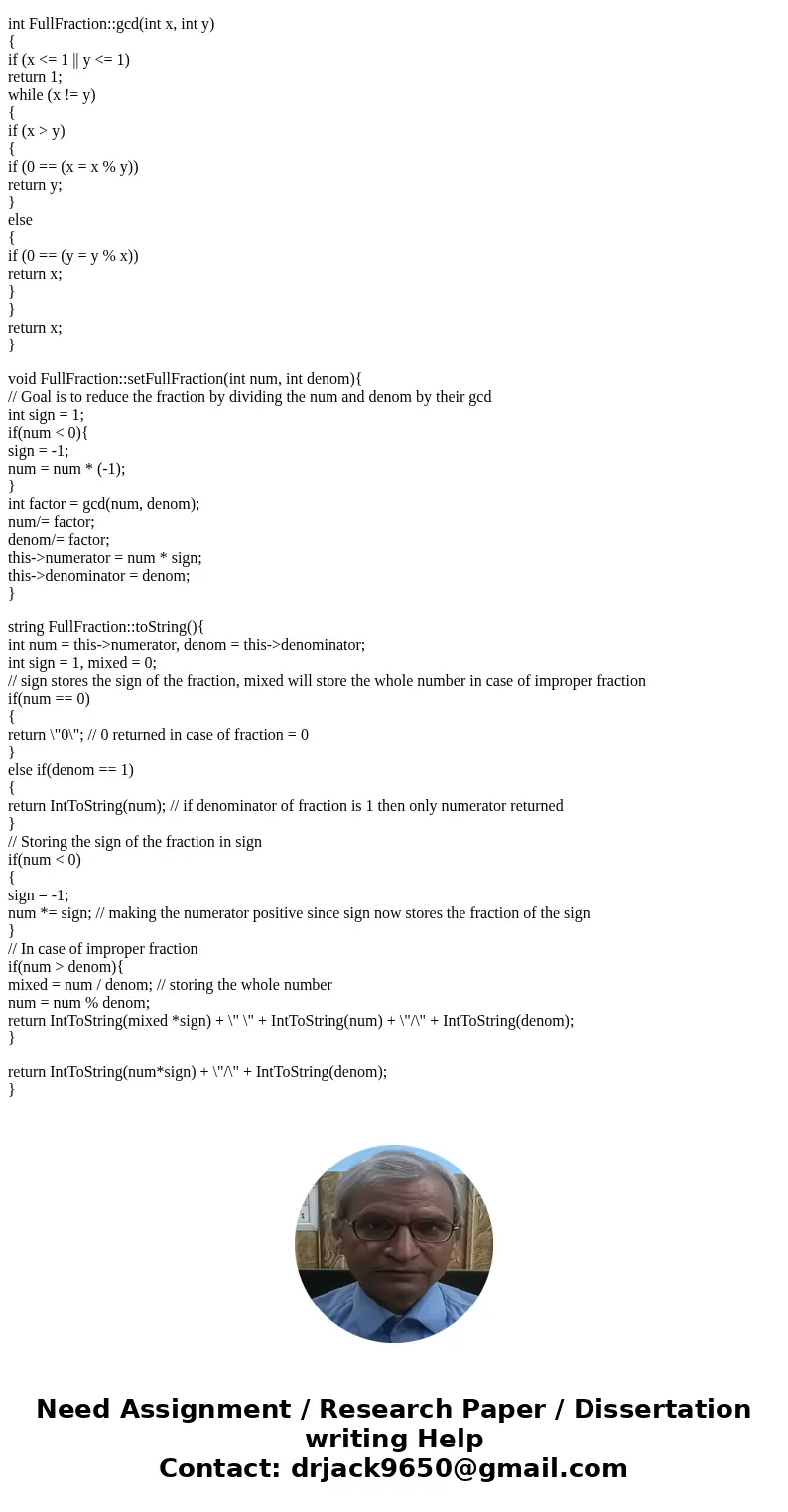Using the previous assignment expand it to include methods f
Using the previous assignment, expand it to include methods for the other rational number arithmetic operations, according to the class declaration below.
Guidelines
Maintain fractions internally in lowest terms - the best place to do this is in setFraction()
Be sure to maintain the sign of the fraction correctly
Avoid a 0 in the denominator by forcing the fraction to 0
Enhance toString() to display a mixed fraction (whole numbers and fraction) when the numerator is greater than the denominator
Use the following test driver to test the class.
The output of the test driver is:
Solution
#include<iostream>
#include<cstdio>
#include<cstring>
#include <sstream>
using namespace std;
// Helper function to convert an integer to string
string IntToString (int a)
{
ostringstream temp;
temp<<a;
return temp.str();
}
class FullFraction
{
int numerator;
int denominator;
int gcd(int x, int y);
public:
FullFraction();
FullFraction(int n, int d);
FullFraction add(FullFraction rop);
FullFraction subtract(FullFraction rop);
FullFraction multiply(FullFraction rop);
FullFraction divide(FullFraction rop);
int getNumerator() const;
void setFullFraction(int num, int denom);
int getDenominator() const;
float getDecimal() const;
std::string toString();
};
FullFraction::FullFraction(){
this->numerator = 0;
this->denominator = 1;
}
FullFraction::FullFraction(int n, int d){
int signNum = 1, signDenom = 1; // Goal is to separate sign of num and denom and then assign correct sign to num
if(n < 0)
{
signNum = -1;
n = n * (-1);
}
if(d < 0)
{
signDenom = -1;
d = d * (-1);
}
int sign = signNum * signDenom;
this->setFullFraction(sign * n,d);
}
float FullFraction::getDecimal() const
{
return this->numerator / (float)this->denominator;
}
int FullFraction::getDenominator() const
{
return this->denominator;
}
int FullFraction::getNumerator() const
{
return this->numerator;
}
FullFraction FullFraction::add(FullFraction rop)
{
int num, denom;
denom = this->denominator * rop.denominator;
num = this->denominator * rop.numerator + this->numerator * rop.denominator; // simple addition
return FullFraction(num,denom);
}
FullFraction FullFraction::subtract(FullFraction rop)
{
FullFraction rop2(rop.numerator * (-1) , rop.denominator); // negate sign of second fraction and add the fractions
return this->add(rop2);
}
FullFraction FullFraction::multiply(FullFraction rop)
{
return FullFraction(this->numerator * rop.numerator, this->denominator * rop.denominator); // simple multiplication
}
FullFraction FullFraction::divide(FullFraction rop)
{
return FullFraction(this->numerator * rop.denominator, this->denominator * rop.numerator); // simple division
}
int FullFraction::gcd(int x, int y)
{
if (x <= 1 || y <= 1)
return 1;
while (x != y)
{
if (x > y)
{
if (0 == (x = x % y))
return y;
}
else
{
if (0 == (y = y % x))
return x;
}
}
return x;
}
void FullFraction::setFullFraction(int num, int denom){
// Goal is to reduce the fraction by dividing the num and denom by their gcd
int sign = 1;
if(num < 0){
sign = -1;
num = num * (-1);
}
int factor = gcd(num, denom);
num/= factor;
denom/= factor;
this->numerator = num * sign;
this->denominator = denom;
}
string FullFraction::toString(){
int num = this->numerator, denom = this->denominator;
int sign = 1, mixed = 0;
// sign stores the sign of the fraction, mixed will store the whole number in case of improper fraction
if(num == 0)
{
return \"0\"; // 0 returned in case of fraction = 0
}
else if(denom == 1)
{
return IntToString(num); // if denominator of fraction is 1 then only numerator returned
}
// Storing the sign of the fraction in sign
if(num < 0)
{
sign = -1;
num *= sign; // making the numerator positive since sign now stores the fraction of the sign
}
// In case of improper fraction
if(num > denom){
mixed = num / denom; // storing the whole number
num = num % denom;
return IntToString(mixed *sign) + \" \" + IntToString(num) + \"/\" + IntToString(denom);
}
return IntToString(num*sign) + \"/\" + IntToString(denom);
}



 Homework Sourse
Homework Sourse